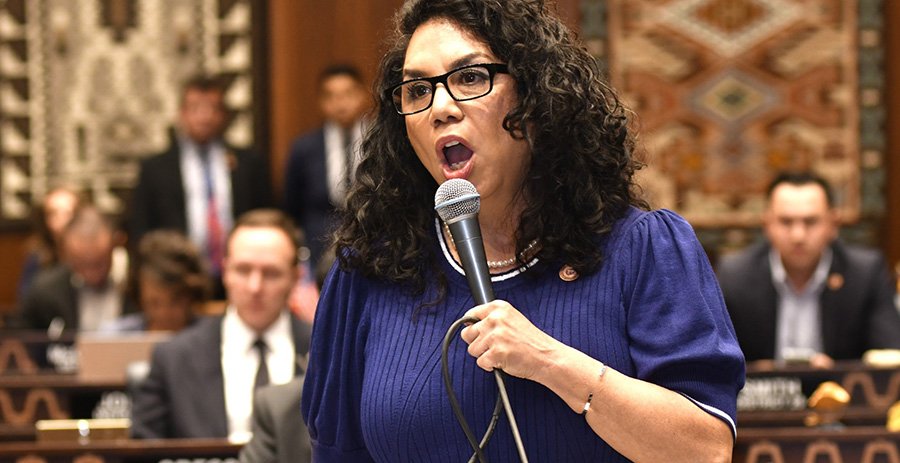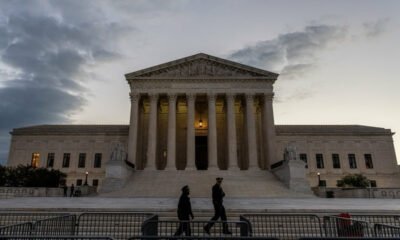Donald Trump
GOP Lawmaker Pushes Governor and AG to Back Trump’s Immigration Agenda

A lawmaker from Casa Grande, Rep. Teresa Martinez, is advocating for legislation that would require Arizona’s government to comply with any federal immigration directives issued by President Trump upon his return to office. This proposed bill, HB 2099, would not only mandate cooperation from Governor Katie Hobbs but also from Attorney General Kris Mayes.
Hobbs has yet to comment on whether she would approve the legislation, leaving uncertainty about its future. A spokesperson indicated her willingness to work with Trump on selected immigration issues, but the specifics remain unaddressed.
Mayes, however, has expressed strong opposition to the bill’s broad requirements. Her spokesperson stated that blindly following Trump’s orders, especially if they conflict with constitutional rights, is unacceptable. “We’re going to wait and see what the new administration plans to implement and respond accordingly,” said Richie Taylor.
Martinez maintains that Trump’s electoral victory is a clear mandate to pursue the enforcement policies he proposed during his campaign, including large-scale deportations. According to her, HB 2099 goes beyond mere compliance with federal law; it demands that state officials actively “enforce, administer and cooperate with federal actions” related to immigration, potentially broadening state responsibilities significantly.
Martinez firmly believes in the legality of her stance, stating that individuals without legal status do not possess the right to reside in the United States or Arizona. She argues that the language of the proposed law honors states’ rights while positioning Arizona to align itself with federal mandates.
The political landscape surrounding this issue is complex. Both Hobbs and Mayes are navigating the fallout from Trump’s recent electoral win, along with the Democratic losses within the state Legislature. Martinez asserts that it is crucial to direct state governance in alignment with federal law, particularly in the area of immigration.
Despite Martinez’s assertions, Hobbs has previously indicated limits to her collaboration with Trump, particularly regarding state resources in immigration enforcement. During a pre-session interview, she clearly stated her intent not to engage in efforts that could harm local communities.
The ramifications of HB 2099 raise essential questions about the definitions of federal cooperation and state rights. Martinez’s proposal includes specific mandates but does not address complexities involving the treatment of undocumented individuals with U.S.-born children.
Although Martinez suggests a potential pathway to legal residency for “dreamers,” she insists that their parents must leave the U.S. to apply for residency, emphasizing her strict viewpoint on immigration policy.
As the bill moves forward, the spotlight remains on Hobbs and Mayes, who must weigh public sentiment and constitutional obligations against pressures from state legislators pushing for stringent immigration enforcement.


















